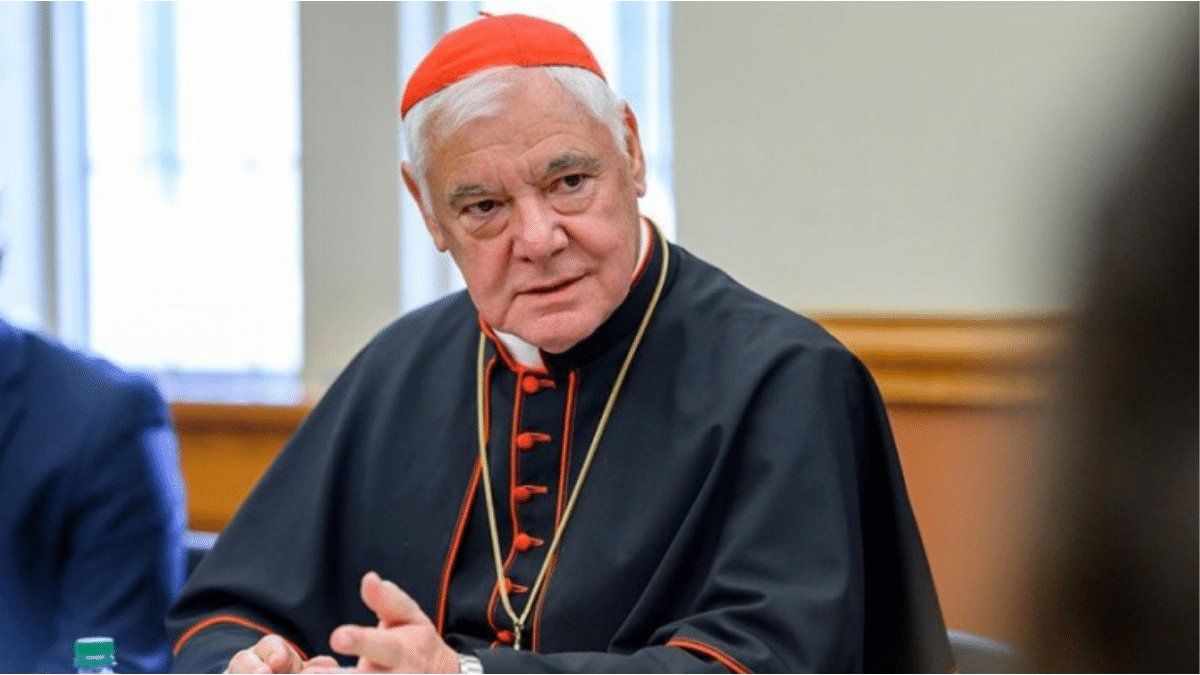The cardinal Gherard Ludwig Müller He referred to the Death of Pope Francis as the closure of an era, and also criticized the agreements made with communist countries or where Islam is professed. The German is one of the referents of the traditionalist wing of the Church.
“A chapter has ended in the history of the Church. Clearly the last judgment corresponds to God, we cannot judge people. But if we talk about their pontificate, there are different opinions”Müller said in an interview. His statement summarizes the critical tone that he maintained towards Francisco’s leadership, especially from his position within the conservative wing of the Curia.
Criticism of Francisco’s pontificate: Müller’s gaze
Müller, who was the prefect of the congregation for the doctrine of faith, has established himself as a Referential figure for the sectors that question the Argentine Pope. After his death, the cardinal will participate in the next conclave as one of the voters, since he has not yet turned 80 (he is 77).
Among the decisions most questioned by Müller is the agreement with the Chinese government that allows the joint appointment of bishops, despite the absence of formal diplomatic ties: “Agreements with these powerful dictators must be reached but We cannot betray the principles of our faith, we cannot accept that atheist communists, enemies of humanitywrite our catechism books or take Xi Jinping images to the churches. We cannot accept that the communists name bishops, ”he defends.
Pope Muller.jpg
Müller was criticized against Francisco’s papacy.
Nor shared the Pope’s opening towards the informal blessing of homosexual couplesclaiming that this practice generates confusion and must be reviewed by the future Pontiff: “The document approved in Francisco’s pontificate wanted to help these people pastorally but the Catholic doctrine of marriage should not be relativized.”
Another point of tension for the cardinal is the inclusion of lay people with the right to vote in the Synod of Bishops, since it considers that this measure blur the traditional role of the prelates: “Bishops have an authority that should not be confused with the possibility of all the baptized of speaking. It is a legitimate symposium, but it is not a synod (…) The wrong thing is to confuse the Church with a political organization”
The allocation of vatican leadership positions to women has also been the subject of repairs by Müller, although I clarify that “the problem is not the woman, but that a layman called to preside over what was once a congregation, which was previously the expression of the authority of the Cardinal College.”
Regarding the interreligious dialogue promoted by Francisco, especially with Islam, Müller is more skeptical: “We can dialogue with them: they respect certain principles of natural ethics and believe in God in their own way. But we must ask ourselves how it is possible that someone who believes in God, creator of all men, can kill in his name. Dialogue yes but avoid all forms of relativism, ”he said.
Looking ahead to the future conclave, the cardinal emphasizes the importance of remembering the spiritual essence of the Church against the attempts of secularization: “This pleases many secularized people, the elite, the oligarchs, who would like a pope as a symbol of their religion. But the Pope is not a symbol of a secularized religion”, and stressed that the Church “It is not an international humanitarian and social organization”.
Source: Ambito




